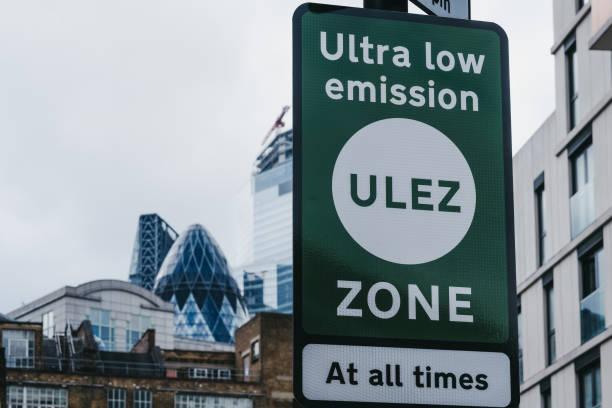Campaigners call for bold political action on clean air
The Healthy Air Coalition has written to the Prime Minister and Leader of the Opposition in response to recent debates about clean air zones.
Following discussion of the use and effectiveness of clean air zones as a tool for cleaning up the UK’s air, the Healthy Air Coalition is calling for political leaders to follow the evidence on this issue. It’s time for politicians to commit to bold action that tackles the scourge of air pollution.
You can read the full text of our letter to Rishi Sunak and Sir Keir Starmer, below.
Dear Rishi Sunak and Sir Keir Starmer,
We have seen significant progress over the last forty years in reducing the UK’s levels of air pollution, but we cannot take this progress for granted. If we want our communities to have cleaner air, then we cannot discard the best tool we have right now – clean air zones.
We are the Healthy Air Coalition – a collective of leading health, environment and transport organisations – uniting to reduce sources of modern air pollution, improve existing legislation and bring in new, stronger clean air laws so that we can protect the health of everyone in the UK.
Air pollution still contributes to up to 43,000 premature deaths each year in England. There are 24 million people who are still living in areas with illegal levels of NO2 pollution in cities and regions across the whole country, including Greater Manchester, Greater London, the West Midlands, West Yorkshire, Sheffield, Glasgow, Liverpool and Bristol.
We also have to remember that air pollution disproportionately affects the disadvantaged – who are exposed to worse pollution levels because of where they live – as well as vulnerable groups like pregnant women, children, older people and those living with pre-existing health conditions.
The financial cost to air pollution is significant too. Between 2017 and 2025, it is estimated it will cost the NHS and social care system £1.6 billion to treat the impact of air pollution. This rises to £5.56 billion when you include the impact of diseases for which the evidence of association is less developed but emerging.
Ignoring this issue is simply not an option, but fortunately there are proven ways to tackle toxic air at a local level. One of the most powerful of these tools is clean air zones (CAZs), which have had a measurable impact everywhere that they have been introduced:
- The central London Ultra-Low Emission Zone (ULEZ) was responsible for a 46% reduction in NO2 levels after its introduction in 2019.
- In Birmingham, the CAZ saw NO2 levels reduced by 13% in the first six months.
- In Bath, the CAZ saw NO2 reduced by 21% (compared to a 2019 baseline) inside the zone and by 22% outside its boundary.
- The Government’s 2017 plan for tackling roadside NO2 said that, in the majority of cases, a network of CAZs is the most effective route to complying with legal air quality limits.
We recognise that implementing a clean air zone is not easy and that people are struggling to make ends meet during this cost-of-living crisis. However, clean air zones only capture the oldest vehicles (9 out 10 vehicles in London are compliant) and there are ways to support people and businesses to upgrade their vehicles or switch to less polluting modes of transport.
The government provided significant support to cities that were implementing a clean air zone – Birmingham received £38m, Bristol received £42m, Bradford received £30m – and the Mayor of London has set up a £160m scrappage scheme fund to help Londoners. It is vital that cities implementing a clean air zone receive generous funding to support a fair and equitable transition to cleaner vehicles.
This may seem like a high cost given the challenge of the current fiscal landscape, but any government that wants to tackle air pollution without clean air zones should consider what other policies it will deploy. These policies are likely to be just as challenging and costly to achieve the same results as clean air zones, if not more so.
We all know that air pollution needs to be reduced, and clean air zones are currently a crucial part of the toolbox available to local authorities. The key to making them a success is coordinated support from national, regional and local government to support the transition away from polluting vehicles.
We are calling on the leaders of our major political parties to show leadership and conviction in the face of this threat to human health.
Yours sincerely,
The Healthy Air Coalition

